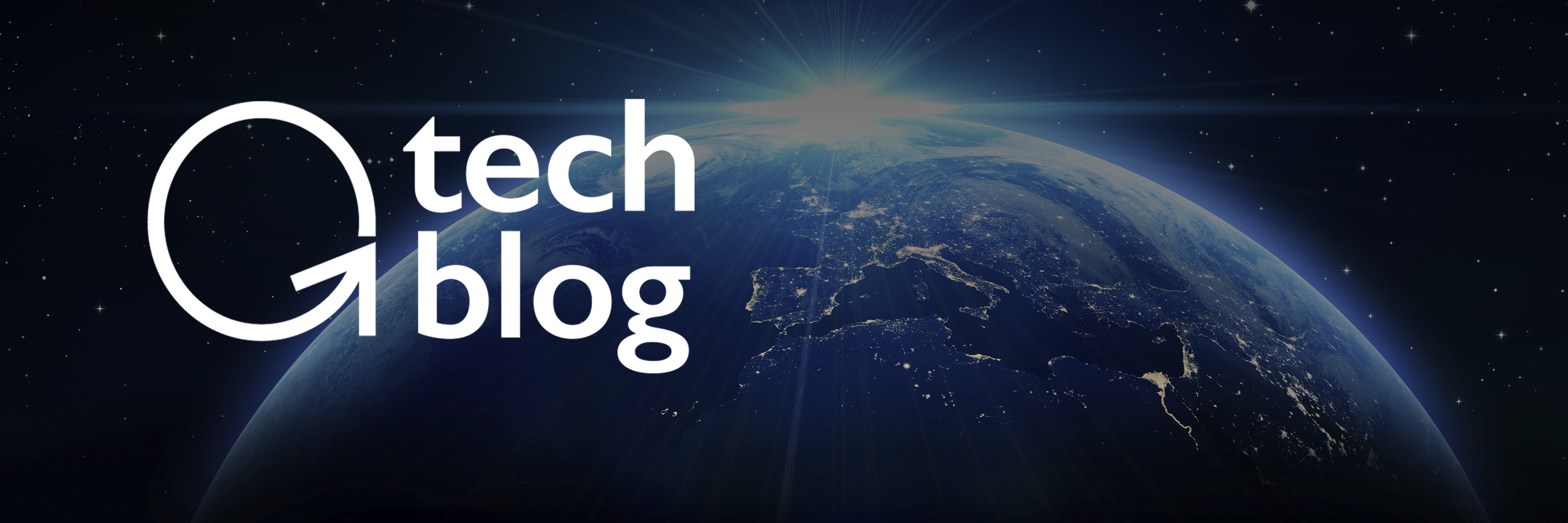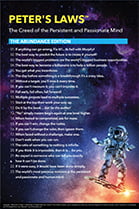
I collect a lot of data. We all do.
The fact is that data is worth a lot of money.
Google and Facebook built hundred billion+ dollar companies based on mining data.
Shouldn’t you?
P.S. Send any tips to our team by clicking here, and send your friends and family to this link to subscribe to Abundance Insider.
In Abundance, I wrote about my friend Rob McEwen, Chairman of Goldcorp, who literally mined his data for gold bullion.
Rob offered a $500,000 prize to anyone who could analyze the geological data collected from his Goldmine to help him locate the next 6 million ounces of gold.
He turned a $500,000 prize into a $3 billion return…
Below are the details of how he did it (and how you can too). Enjoy!
How would you use a similar competition in your business? (BTW, check out www.HeroX.com if you’re interested in this sort of thing).
***Beginning of Abundance Excerpt: Gold in Dem Hills***
A dapper Canadian in his mid-fifties, Rob McEwen bought the disparate collection of gold mining companies known as Goldcorp in 1989. A decade later, he’d unified those companies and was ready for expansion – a process he wanted to start by building a new refinery. To determine exactly what size refinery to build, McEwen took the logical step of asking his geologists and engineers how much gold was hidden in his mine. No one knew. He was employing the very best people he could hire, yet none of them could answer his question.
About the same time, while attending an executive program at MIT’s Sloan School of Management, McEwen heard about Linux. This open-source computer operating system got its start in 1991, when Linus Torvalds, then a twenty-one-year-old student at the University of Helsinki, Finland, posted a short message on Usenet:
I’m doing a (free) operating system (just a hobby, won’t be big and professional like gnu) for 386(486) AT clones. This has been brewing since April, and is starting to get ready. I’d like any feedback on things people like/dislike in minix…
So many people responded to his post that the first version of that operating system was completed in just three years. Linux 1.0 was made publicly available in March 1994, but this wasn’t the end of the project. Afterward, support kept pouring in. And pouring in. In 2006 a study funded by the European Union put the redevelopment cost of Linux version 2.6.8 at $1.14 billion. By 2008, the revenue of all servers, desktops, and software packages running on Linux was $35.7 billion.
McEwen was astounded by all this. Linux has over ten thousand lines of code. He couldn’t believe that hundreds of programmers could collaborate on a system so complex. He couldn’t believe that most would do it for free. He returned to Goldcorp’s offices with a wild idea: rather than ask his own engineers to estimate the amount of gold he had underground, he would take his company’s most prized asset – the geological data normally locked in the safe – and make it freely available to the public. He also decided to incentivize the effort, trying to see if he could get Torvald’s results in a compressed time period. In March 2000 McEwen announced the Goldcorp Challenge: “Show me where I can find the next six million ounces of gold, and I will pay you five hundred thousand dollars.”
Over the next few months, Goldcorp received over 1,400 requests for its 400 megabytes of geological data. Ultimately, 125 teams entered the competition. A year later, it was over. Three teams were declared winners. Two were from New Zealand, one was from Russia. None had ever visited McEwen’s mine. Yet so good had the tools of cooperation become and so ripe was our willingness to use them that by 2001, the gold pinpointed by these teams (at a cost of $500,000) was worth billions of dollars on the open market.
When McEwen couldn’t determine the amount of ore he had underground, he was suffering from “knowledge scarcity.” This is not an uncommon problem in our modern world. Yet the tools of cooperation have become so powerful that once properly incentivized, it’s possible to bring the brightest minds to bear on the hardest problems. This is critical, as Sun Microsystems co-founder Bill Joy famously pointed out: “No matter who you are, most of the smartest people work for someone else.”
Our new cooperative capabilities have given individuals the ability to understand and affect global issues as never before, changing both their sphere of caring and their sphere of influence by orders of magnitude. We can now work all day with our hands in California, yet spend our evenings lending our brains to Mongolia. NYU professor of communication Clay Shirky uses the term “cognitive surplus” to describe this process. He defines it as “the ability of the world’s population to volunteer and to contribute and collaborate on large, sometimes global, projects.”
“Wikipedia took one hundred million hours of volunteer time to create,” says Shirky. “How do we measure this relative to other uses of time? Well, TV watching, which is the largest use of time, takes two hundred billion hours every year – in the US alone. To put this in perspective, we spend a Wikipedia worth of time every weekend in the US watching advertisements alone. If we were to forgo our television addiction for just one year, the world would have over a trillion hours of cognitive surplus to commit to share projects.” Imagine what we could do for the world’s grand challenges with a trillion hours of focused attention.
***End of Abundance Excerpt***
Also read: TOP 50 MOON SHOTS (2000 - 2020)
WHAT IS ABUNDANCE INSIDER?
This email is a briefing of the week's most compelling, abundance-enabling tech developments, curated by Marissa Brassfield in preparation for Abundance 360. Read more about A360 below.
WANT MORE CONVERSATIONS LIKE THIS? - JOIN ME
At Abundance 360, Peter's 360-person executive mastermind, we teach the metatrends, implications and unfair advantages for entrepreneurs enabled by breakthroughs like those featured above. We're looking for CEOs and entrepreneurs who want to change the world. The program is highly selective. Apply now for Abundance360 Summit if you'd like to develop an Abundance Mindset.
Know someone who would benefit from getting Abundance Insider? Send them to this link to sign up.
Photo Credit: Shutterstock.







